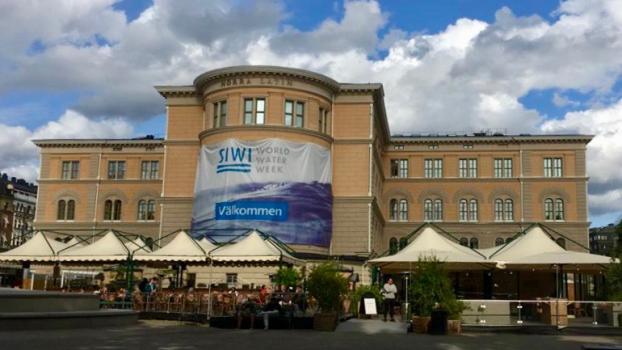Key Takeaways from Stockholm World Water Week 2018
More than 3,000 practitioners and decision-makers gathered in Stockholm, Sweden, at the end of August 2018 for World Water Week. Hosted by the Stockholm International Water Institute (SIWI), this annual gathering encourages new thinking and positive action on water-related opportunities and challenges.
Engaging in a productive and busy week, USAID leaders, staff, and partners took center stage at more than a dozen events, including hosting a reception at the U.S. Ambassador’s residence with the Department of State to honor this year’s Stockholm Water Laureates.
“Our goals at Water Week were to lead the global dialogue around the need for unlocking new financing options for water and sanitation, crowding-in the private sector, and creating opportunities for women in the global water workforce. In the end these are what will help facilitate our partner countries’ journey to self-reliance in the water sector,” said James Peters, USAID Deputy Assistant Administrator and Acting Global Water Coordinator, who led the Agency’s delegation to Stockholm.
During numerous sessions, USAID staff contributed their expertise and perspectives on water sector financing, system strengthening, diversity and inclusion, ecosystem services, resilience, and donor coordination. Other activities included connecting with partners to collaborate on shared interests and hosting a side event with a range of organizations to explore the use of skilled volunteers in USAID water and sanitation programs. Agency colleagues from missions including India and Ghana took the opportunity to engage in sector dialogue on topics of interest in their respective regions.
Interagency partners from the Department of State, NASA, and other agencies that contributed to the U.S. Government Global Water Strategy (GWS) complemented the USAID delegation, showing a whole-of-government commitment to ensuring a water-secure world.
USAID presenters and attendees share their takeaways from specific sessions below, offer some overall reflections about the conference, and explain how key topics resonate with their current water work and new directions outlined in the GWS.
For the full story, please continue reading on Global Waters on Medium.
Related blog: The Ripple Effect: Supporting Women’s Empowerment through Water


